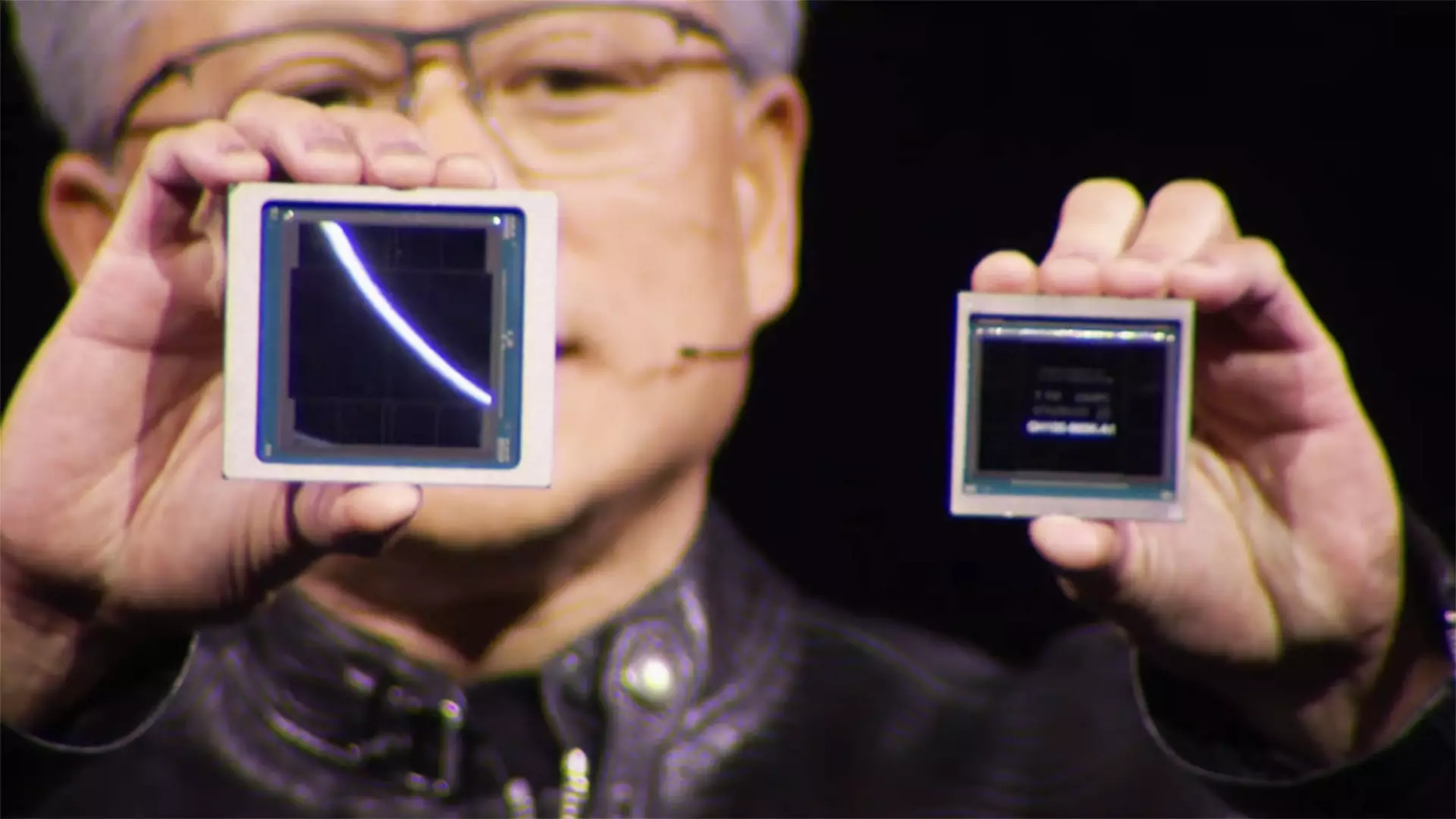Nvidia’s narrative regarding the chip export restrictions imposed by the United States strongly suggests that the company is not only concerned about its financial losses but also about the broader implications for global technological leadership. Recent comments from Bill Dally, Nvidia’s chief scientist, outline a growing concern: the U.S. restrictions are inadvertently fueling China’s progress in artificial intelligence. This narrative argues that tech giants like Huawei are not merely competing; they are rapidly closing the gap because of the U.S. government’s actions. The challenge here lies not just in the realm of market competition but in the dynamics of innovation and talent acquisition, which, by Dally’s assertion, is increasingly tilting toward China.
In 2019, one-third of the world’s AI researchers were based in China. According to Dally, this figure has shot up to nearly half, revealing a seismic shift that goes beyond mere numbers. While the U.S. administration might be proclaiming a strategy aimed at hindering China’s technological advancements, these restrictions have seemingly led to the opposite outcome. The allure of a burgeoning job market and the rich potential of homegrown AI solutions illuminate a pathway for many researchers, who find their opportunities flourishing despite, or because of, U.S. sanctions. The situation raises alarming questions: Is America inadvertently paving the way for its own technological obsolescence?
Financial Implications of Export Controls
The financial ramifications for Nvidia are palpable, begging the question of whether their advocacy against export restrictions is fueled more by fiscal desperation than genuine concern for the landscape of global technology. Recent reports indicate Nvidia is poised to lose billions due to these sanctions—$8 billion anticipated in the second quarter alone, following losses of several billion in the first. It appears that the more significant the restrictions grow, the more critical the company’s financial health becomes. In this light, one might wonder if the narrative Nvidia is constructing serves as a marketing strategy to sway public opinion and ultimately influence policymakers in Washington.
Through the lens of economic interests, the narrative surrounding Huawei’s technological advancements morphs from one of national security into a stark competition for market dominance. This perspective adds an intriguing layer to the ongoing U.S.-China rivalry and poses a dilemma: to strengthen America’s economic stance, should other tech companies in the U.S. also be prepared for the potential consequences of these restrictions? If so, does this push toward “buy American” create a risk of stifling innovation at home?
The Poaching Dilemma
As the situation evolves, Nvidia must reconcile its ambitions with ethical ambiguities, especially regarding talent acquisition in the realm of artificial intelligence. The irony is not lost when one considers that while Nvidia raises an alarm over Huawei enticing away their former employees, it quietly partakes in similar recruiting strategies. Open positions in Nvidia are not just about filling roles; they reflect a calculated move to attract the best talent from Taiwan’s semiconductor sector, such as TSMC. This “poaching” dynamic poses ethical questions regarding industry norms and the idea of fair competition.
The double standard runs deep. Nvidia benefits from a talent acquisition strategy that maximizes its strengths while simultaneously lamenting the loss of its skill-set to an emerging competitor. It suggests that competition that employs questionable ethics is an ingrained feature of the tech industry, leading one to ponder: is this the nature of business in a high-stakes global economy? Should companies prioritize morality when pursuing competitive advantages?
A Call for a Reassessment of Export Policies
The ongoing cat-and-mouse game between the U.S. and China in the tech sector calls for a thorough reassessment of export policies. As companies like Nvidia grapple with the realities of a technologically evolving world, policymakers need to re-evaluate not only the implications of their restrictions but also their effectiveness in curtailing China’s trajectory. The fine line between protecting national interests and inadvertently fostering rival innovation is one that calls for careful navigation.
As Wang Dally’s comments illustrate, while the intent may be noble, these restrictions could ironically backfire, accelerating the transformation of competitors into global leaders. In an age where technology transcends borders, the importance of fostering international collaboration, rather than unilateral sanctions, cannot be overstated. A successful technological future may not merely hinge on restricting access but rather on creating avenues for cooperation that transcend competing ideologies. It’s an enigma worth pondering as both giants tread cautiously into unpredictable waters.

